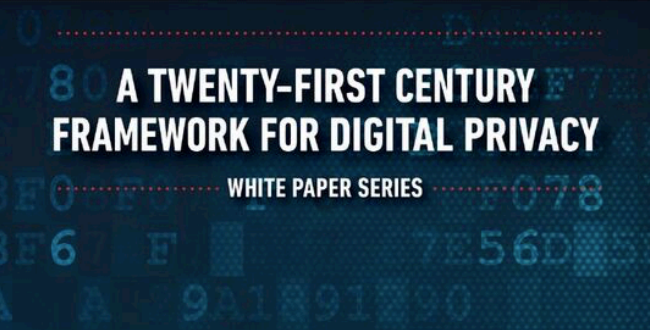Balancing Privacy and Security in the Digital Age

Balancing Privacy and Security in the Digital Age brings together leading experts consider the future of the Fourth Amendment in the digital age, reflect on the challenges that new technologies pose to privacy and security, and tackle one of the most important legal challenges of the digital age—how to protect privacy and security in the era of cloud computing. Contributors included Jennifer Daskal of American University Washington College of Law, Jim Harper of the Competitive Enterprise Institute, David S. Kris then of Intellectual Ventures, Neil Richards of Washington University School of Law, and Christopher Slobogin of Vanderbilt Law School.
The National Constitution Center and the authors of these papers maintained editorial independence during the production of “A Twenty-First Century Framework for Digital Privacy.” The series was produced with support from Microsoft.
Introduction: A Twenty-First Century Framework for Digital Privacy
By Jeffrey Rosen of the National Constitution Center
Jeffrey Rosen provides an overview of the white paper series and explains how breathtaking changes in technology pose challenges to privacy and security.
Read Online | Get PDF
Whose Law Governs in a Borderless World?
By Jennifer Daskal of American University Washington College of Law
Jennifer Daskal explores the challenges posed by data mobility and considers how best to resolve cross-border data disputes in a way that promotes privacy, security, and sovereignty.
Read Online | Get PDF
Administering the Fourth Amendment in the Digital Age
By Jim Harper of the Competitive Enterprise Institute
Jim Harper critiques current Fourth Amendment doctrine and calls on courts to adopt a new approach that hews closely to the Fourth Amendment’s text and protects data, information, and communications as a key form of property.
Read Online | Get PDF
Digital Divergence
By David S. Kris of Intellectual Ventures
David S. Kris challenges the view that balancing privacy and security in the digital age is a zero-sum game. Instead, he explores how advances in digital technologies are threatening both privacy and security.
Read Online | Get PDF
Secret Government Searches and Digital Civil Liberties
By Neil Richards of Washington University School of Law
Neil Richards tackles the issue of “secret government searches”—namely, instances of government surveillance that remain secret to the search target.
Read Online | Get PDF
Policing and The Cloud
By Christopher Slobogin of Vanderbilt Law School
Christopher Slobogin explores how best to construct legal approaches that will allow the government to harness The Cloud’s investigative potential, while also limiting the opportunities for government abuses.
Read Online | Get PDF







